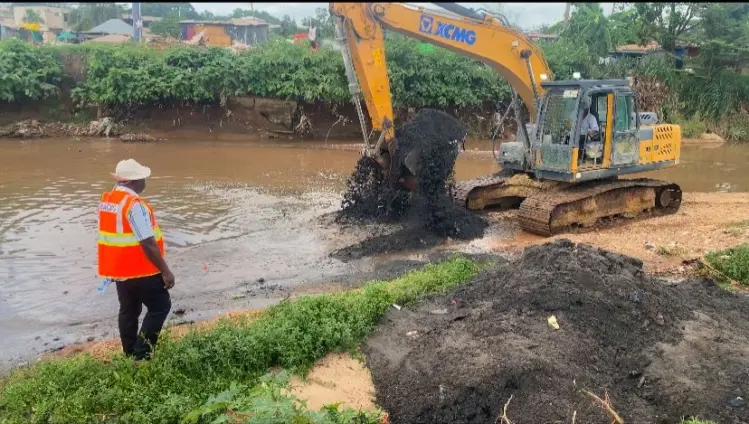The Gomoa East Onion Market, a bustling hub just outside Accra, pulses with life. Every Monday and Thursday, it transforms into a critical artery for Ghana’s food supply, injecting hope and opportunity into the surrounding communities. What started as a solution to congestion has blossomed into an economic force, offering livelihoods and driving regional commerce. This thriving market, born from the relocation efforts connected to the Agbogbloshie market, now stands as a testament to the ingenuity and resilience of Ghanaian traders.
The Gomoa East Onion Market isn’t just about onions; it’s about creating jobs in Ghana and fostering economic growth in the Gomoa East District. Its origins lie in the complex process of relocating traders from the Agbogbloshie market, a move that, while intended to improve conditions, initially presented new challenges. But from these challenges, an opportunity arose, leading to the establishment of a market that now serves as a vital link in the supply chain for several regions.
From Congestion to Commerce: The Genesis of Gomoa East Onion Market
The initial plan was to relocate traders from the Agbogbloshie market to Adjen Kotoku. However, this relocation led to its own set of problems, including overcrowding and disputes over space. The market quickly became congested, hindering trade and creating new difficulties for the traders who had been promised a better environment. This prompted a search for alternative solutions.
“Amid confusion and despair, visionary leaders of the Onion Sellers Association who live in and around Kasoa advocated for a second hub in Gomoa East, foreseeing its potential to uplift rural livelihoods,” explained a representative of the association. These leaders recognized the potential of Gomoa East as a strategic location and engaged with local chiefs, elders, and the Gomoa East District Assembly to acquire land and establish a new market. Their vision was to create a space that would not only alleviate the congestion at Adjen Kotoku but also provide new opportunities for economic growth in the region.
The Gomoa East Onion Market quickly became a vital trading center. Today, the Gomoa East Onion Market serves the Central, Western, Eastern, and Western North Regions of Ghana. On Mondays and Thursdays, the market is flooded with trucks carrying goods from neighboring countries, highlighting its importance as a regional trading hub. This rapid growth underscores the strategic importance of the market and its potential to further boost the local economy.
The Onion Market Ecosystem: Trade, Opportunity, and Community
The Gomoa East Onion Market is more than just an onion trading hub; it is a diverse ecosystem that supports a variety of businesses. Foodstuff sellers, used clothing vendors, and plastic product sellers have all found a place within the market’s bustling environment. Traders from various regions come to purchase goods in bulk, creating a dynamic marketplace that drives economic activity.
Richard Agbetoe’s story exemplifies the transformative power of the market. A school dropout, Richard found a lifeline at the Gomoa East Onion Market. “Visibly elated, Richard Agbetoe said on each market day, he makes sales of not less than GHC200.00.” This income has not only provided him with a livelihood but has also fueled his ambition to learn carpentry, demonstrating the market’s broader impact on personal development and aspirations.
The positive sentiment is echoed by other traders. Hajia Rahinatu, Abena Afrah, and Hannah Gomez are among those who have expressed their appreciation for the opportunities the market has provided. They highlight the improvements to their businesses and the new possibilities that have emerged since the market’s establishment. These voices underscore the market’s role in empowering individuals and strengthening the community.
Infrastructure Gaps and Community Challenges
Despite its success, the Gomoa East Onion Market faces significant infrastructure challenges. There is a lack of essential facilities such as stalls, proper pavement, roads, sanitation facilities, and streetlights. These deficiencies particularly affect traders during the rainy season, making it difficult to conduct business and hindering the market’s overall efficiency.
The ongoing Kasoa-Winneba road construction has further exacerbated these challenges. The construction has disrupted access to the market and created additional difficulties for traders and customers alike. These infrastructural issues need to be addressed to ensure the market can continue to thrive and fulfill its economic potential.
The influx of traders has also led to a rise in the cost of living in Dominase and surrounding areas. Housing costs have increased, placing a strain on local residents. For example, rents have reportedly increased significantly, impacting the affordability of living in the area. Addressing these challenges is crucial for ensuring the market’s long-term sustainability and its positive impact on the community.
Addressing Challenges and Future Prospects
The Gomoa East District Assembly is taking steps to address some of these challenges. Plans are underway to provide toilet facilities through private investment, improving sanitation conditions within the market. A temporary CHIPS compound has been established to provide basic healthcare services, and security measures have been implemented during market days to ensure the safety of traders and customers. “‘We’re vigilant,’ Abakah emphasises. Our patrols keep everyone safe,” said Patrick Abakah.
Looking ahead, the market has ambitious plans for expansion. Patrick Abakah envisions the Gomoa East Onion Market becoming an international trading hub. “In five to six years, this market could become international. The vision is great, we want it to be recognised worldwide,” he stated. This vision reflects the market’s potential to not only serve Ghana but also to become a major player in the West African regional economy.
The Gomoa East Onion Market stands as a beacon of hope and opportunity in Ghana. From its origins as a relocation solution, it has evolved into a significant economic driver, creating jobs, fostering community development, and improving individual livelihoods. The market’s journey underscores the power of vision, resilience, and community collaboration in driving economic transformation. “This market is very important to the community,” concludes Patrick Abakah, “and we are committed to ensuring its continued success and growth.”
Image Source: MYJOYONLINE






















